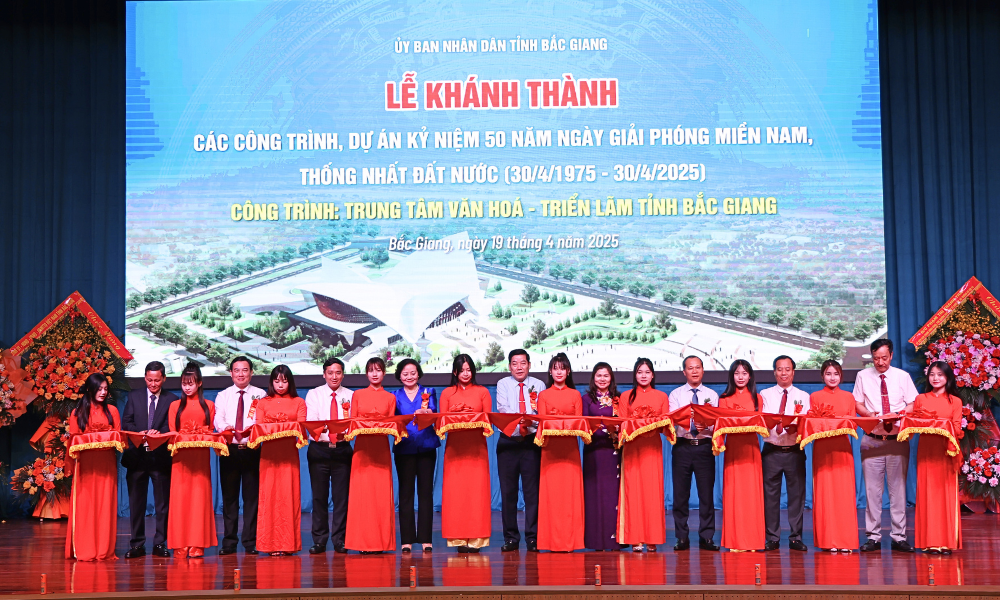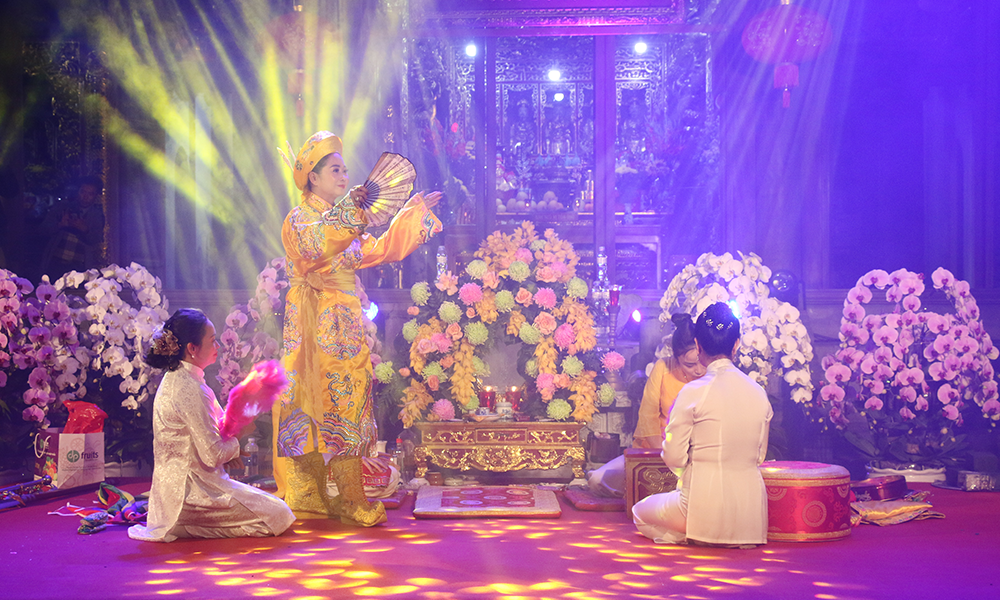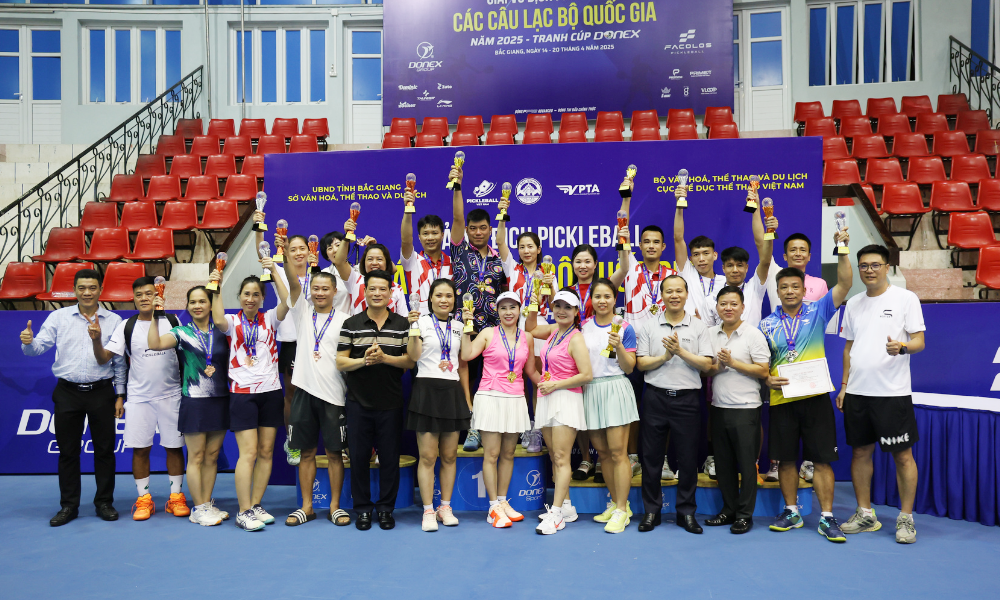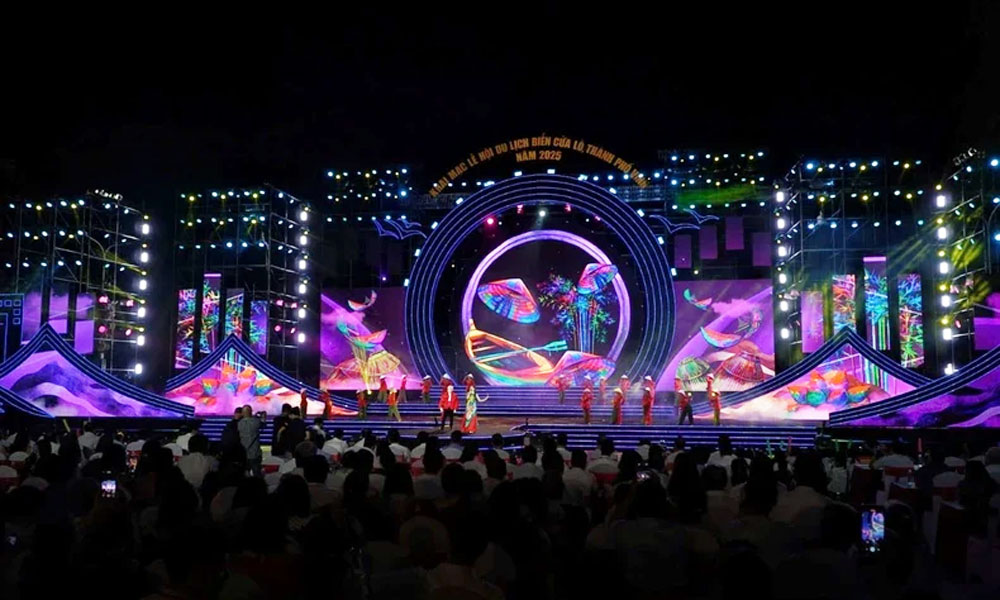Heritage story from street vendors to “Pho AI” at Pho Festival 2025
Pho Festival 2025, under the theme “The Quintessence of Vietnamese Pho – Heritage in the Digital Age,” will run from April 18 to 20 at the Thang Long Imperial Citadel relic site in Hanoi to promote Vietnamese pho as a cultural heritage both domestically and internationally. This year’s event offers many new features, showcasing a unique culinary journey from traditional street pho vendors to modern “Pho AI” experiences in the digital era.
The festival boasts 50 stalls, bringing together famous pho brands from across the three regions of Vietnam, with a spotlight on Hanoi pho, recognised as a national intangible cultural heritage, alongside Nam Dinh pho.
 |
|
Members of the Pho Xua Club from Nam Dinh. |
Diverse cultural and tourism activities throughout the festival offer visitors a chance to visualise the journey of Vietnamese pho from tradition to modernity.
Artisans from the participating pho brands will demonstrate the entire pho preparation process, from ingredient selection and noodle making to broth simmering and serving crispy crullers (quay), providing a fully immersive experience for guests.
Within the event's framework, a talk show titled “Pho as UNESCO Heritage and International Promotion” will gather researchers and artisans to discuss topics such as pho’s evolution from a traditional dish to a global culinary heritage and the process and challenges of preparing a UNESCO dossier for pho-making as a profession.
According to Pham Thanh Dung, a representative of the Pho Festival 2025 Organising Committee, a vivid exhibition titled “The Story of Pho” will be set up on the expansive grounds of the Thang Long Imperial Citadel.
This exhibition will recreate the development journey of Vietnamese pho through various historical periods. Visitors and culinary enthusiasts can engage in hands-on activities, taste diverse pho flavours, follow the nostalgic footsteps of old pho street vendors, explore the ambience of wartime pho stalls, and discover booths of globally renowned pho brands.
A major highlight is the opportunity to savour the unique flavours of pho from various regions, including the Northwest highlands, Nam Dinh, Hanoi, central and southern Vietnam, and even international versions, showcasing pho’s diversity across the S-shaped country.
This honours the local identities, cooking techniques, and creative culinary artistry embodied in every bowl.
In addition to traditional pho stalls, visitors can revisit the nostalgic setting of Hanoi’s subsidised-era beer stalls, where steaming hot bowls of pho were served with refreshing draught beer – a symbol of affordable meals from a bygone era.
The elegance of Hanoi’s culinary culture is further reflected in the lotus tea space, capturing the refined essence of Vietnamese tea-drinking art and offering moments of tranquillity amid the festival's vibrant atmosphere.
One particularly captivating element of the festival is the statue of the Hanoi Pho Vendor, a symbolic representation of pho’s cultural heritage journey.
This statue is a replica of the sculpture “Pho Ganh” (Pho Street Vendor) by artist The Son and sculptor Tran Quoc Thinh, originally displayed at Hanoi’s Duy Tan Culinary Street.
The statue stands approximately 1.75 metres tall, made from composite material with bronze-like patina, depicting an early 20th-century Hanoi pho vendor carrying a yoke, one side with a steaming pot of broth and the other with a pho box.
The image of the street pho vendor has long been immortalised in literature and poetry, carrying the memories, flavours, and lifestyle of generations of Vietnamese people.
It marks the beginning of pho’s journey from humble street food to restaurant menus, earning a place on the world’s culinary map and becoming a cultural heritage of the Vietnamese people.
Nguyen Tien Dat, a representative of an international travel agency, shared his impression during a pre-opening tour of the festival: “The pho vendor statue is a unique highlight that reflects creativity and the spirit of honouring Vietnamese culinary culture.
It has become a true symbol of the dedication and craftsmanship in pho-making, and vividly tells the story of how Hanoi pho’s quintessence has spread far and wide.
We highly appreciate the thoughtful design and the message it conveys, helping to spotlight pho’s value as a national intangible cultural heritage.”
Many food scholars have remarked that Hanoi cuisine doesn’t just taste good – it tells a story. Through Pho Festival 2025, Hanoians are using pho to narrate their tale: a city both ancient and modern, refined in creativity and depth.
The image of the street pho vendor is a time capsule, preserving cultural features from the past and present within the memory and soul of Hanoi’s elegant and gracious people.
Over time, and through its historical journey of formation and development, Vietnamese pho has been spreading internationally, becoming a renowned name on the world’s gastronomic map. Embracing the digital transformation era, this year’s Pho Festival introduces unique features such as the “Pho AI” experience.
Organisers have arranged pho booths that incorporate AI-Chatbot technology to enhance visitor experiences, optimise event operations, and support event promotion.
These include pho stalls that offer cashless payment and full automation – from service to cooking – where even seasoning is customised according to guest preferences.
These models showcase convenient, fast, office- and public-friendly pho options that still retain traditional taste and quality, providing exciting new experiences for younger generations.
Pho Festival 2025 is directed by the Hanoi People’s Committee Office and implemented by the city’s Convention Centre, with the support of Masan Consumer Corporation and Hanoi Beer-Alcohol-Beverage Corporation, under the Bluezone purified water brand.
The event is part of a broader initiative to elevate Vietnamese culinary heritage to the global stage, with aspirations for pho to become recognised as a cultural heritage of humanity.
 Bắc giang
Bắc giang














Reader's comments (0)